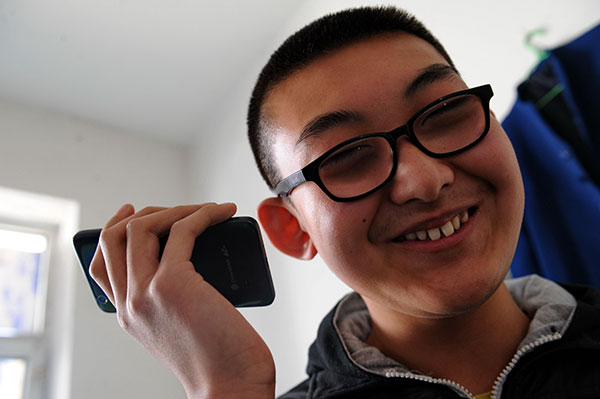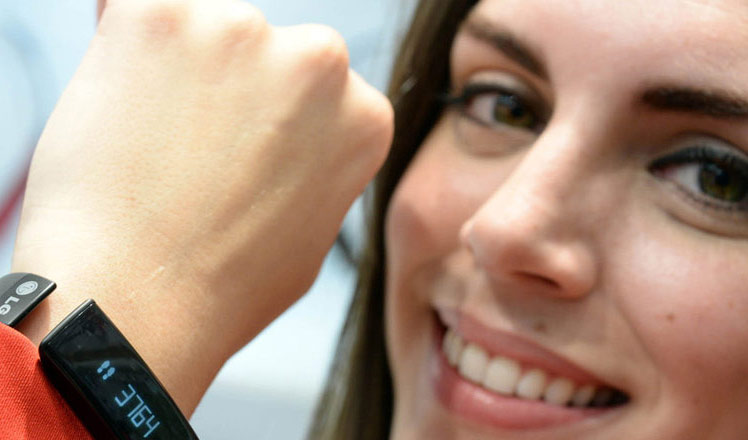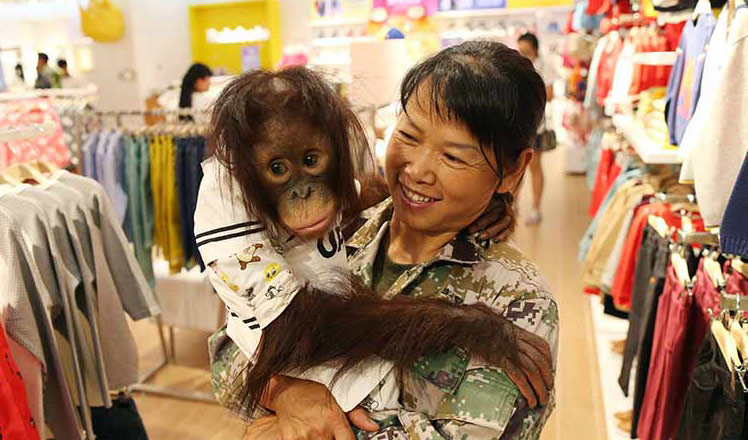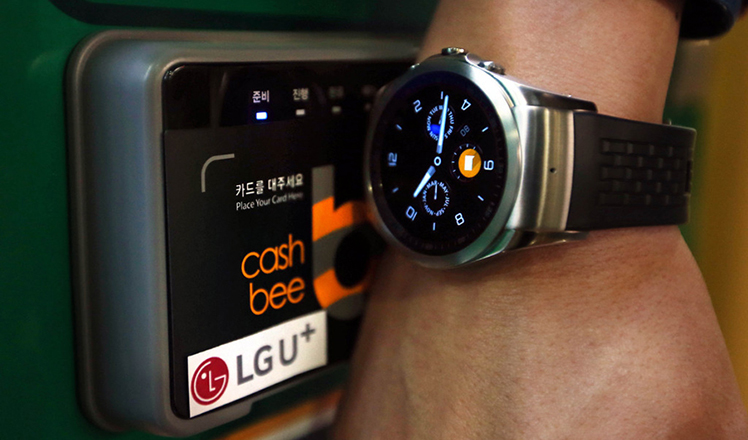Smartphones help the blind see the world
Updated: 2016-08-25 08:21
By Xinhua(China Daily)
|
||||||||
 |
|
A visually impaired teenager listens to music on his cellphone in Changchun, Jilin province. Zhang Nan / Xinhua |
Most people would simply turn to cash, but that is not so easy for Sun, who is blind and cannot tell the denomination of bank notes.
After upgrading his Alipay app, he found his screen reader - software that converts text into synthesized speech - was no longer available.
Sun called customer service, only to get a puzzled response.
"Blind people can use cellphones? Really? How?"
Sun didn't take offense. He is used to ignorance about the way blind people live.
China has about 13 million visually impaired people, and about 6 million of them have smartphones, according to the China Information Accessibility Product Alliance.
With the help of screen readers such as VoiceOver and TalkBack, they can chat with friends, order food and shop online by listening rather than looking.
Li Chongyang, 25, was born blind. Like everyone else, he plays with his smartphone while waiting for the bus in downtown Beijing. However, unlike everyone else he has an app that tells him when the bus will arrive and when to board.
Without his smartphone, riding a bus or taking a cab would be nearly impossible.
"I don't know which vehicle the taxi is. Sometimes they pull over right in front of me, but I am still waving my hand. They think I'm crazy," he said.
"Since installing car-hailing apps like Didi on my phone, I can tell the driver where I am, what clothes I am wearing, and the driver can help me get in the car."
Li has installed 120 apps on his phone. With a screen reader, he invests in stocks, and tracks his daily exercise routine to keep fit.
Sun was not able to make an online payment for nearly three months, but finally managed to contact Alipay's technology department.
The engineers said they had removed the screen reader for fear that hackers would hijack it and get access to users' passwords and other information.
Alipay formed a team to solve the problem, and later invited Sun and two other visually impaired users to become beta testers for the new version of the e-wallet.
Emojis had also been unreadable. However, thanks to engineers' efforts the screen reader can now tell Sun, "Your friend Ming sends you a grin".
"What disabled people need most is to be treated as equals," said Liang Zhenyu, secretary-general of the China Information Accessibility Product Alliance.
"Information accessibility is essential for them to fit into society. Without access to information they will be shut out," Liang said.
- Talks with Manila at early date expected
- Respect, protect nature during development: Xi
- School to compensate parents of students studying in US
- Gobi has been found! Marathon-running stray dog reunites with owner
- Six Chinese youths make MIT's innovators of the year list
- Whale shark found dead in
East China
- Prince William and Kate visit charity orgarnization in Luton
- China welcomes Japan to play constructive role in G20 summit
- Expert: G20 ushers in collective leadership
- Turkey to provide support for anti-IS operation in Jarablus
- China, Japan, S. Korea should work to make differences controllable
- Several killed after strong quake strikes Italy, topples buildings

 Top 5 fitness bands in customer satisfaction
Top 5 fitness bands in customer satisfaction
 Orangutan goes shopping in Southwest China
Orangutan goes shopping in Southwest China
 Prince William and Kate visit charity orgarnization
Prince William and Kate visit charity orgarnization
 London Zoo's animals have annual weigh in
London Zoo's animals have annual weigh in
 Ukraine celebrates Independence Day
Ukraine celebrates Independence Day
 Top 5 smartwatches in customer satisfaction
Top 5 smartwatches in customer satisfaction
 Woman creates silk Chinese cabbage
Woman creates silk Chinese cabbage
 Panda family celebrate birthday in Malaysia
Panda family celebrate birthday in Malaysia
Most Viewed
Editor's Picks

|

|

|

|

|

|
Today's Top News
Trump outlines anti-terror plan, proposing extreme vetting for immigrants
Phelps puts spotlight on cupping
US launches airstrikes against IS targets in Libya's Sirte
Ministry slams US-Korean THAAD deployment
Two police officers shot at protest in Dallas
Abe's blame game reveals his policies failing to get results
Ending wildlife trafficking must be policy priority in Asia
Effects of supply-side reform take time to be seen
US Weekly

|

|







